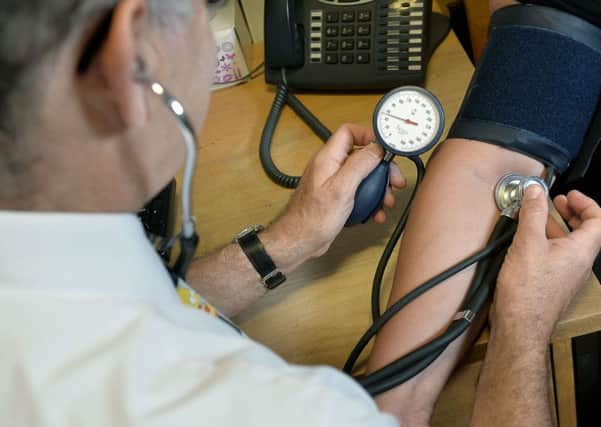Prof Brian Cantor: With this diagnosis, Bradford will meet future health challenges


It is a diverse city, young and vibrant, with 25 per cent of the population below 15 years of age, and with over 100 languages spoken in the schools. Yet our local population is characterised by major health inequalities with, for example, very high levels of diabetes and chronic respiratory illness.
The NHS currently spends around 70 per cent of its budget on treating and managing long-term conditions in the UK. Medical advances have prolonged life, but factors of lifestyle and inequality have resulted in a growing prevalence of chronic healthcare issues. We have in Bradford, however, the means and the will to begin to challenge this reality if we adopt the integrated, innovative approach to health and wellbeing necessary in the 21st century. This is the central theme of my presentation at the British Council’s annual Going Global international conference in London.
Advertisement
Hide AdAdvertisement
Hide AdUniversities, I believe, are at the heart of the health ecosystem of a city and its communities. We play an active role in medical research and innovation, training and educating the health workforce of the future. The University of Bradford has major strengths across the health disciplines. Our range of research and learning programmes are among the best and, crucially, broadest in the United Kingdom.
The Department of Health wants to make the NHS self-sufficient in doctors by 2025 by increasing medical school places. With our successful teaching of almost all other types of health professions, including nursing, midwifery, optometry, physiotherapy, pharmacy and physician associates, and our outstanding pre-clinical school, we are well placed to make a competitive bid for a medical school. This is an important and exciting opportunity for the university, our NHS partners, the city of Bradford and Department of Health to make a significant impact on local and national health and wellbeing.
The Digital Health Enterprise Zone (DHEZ) is led by the University of Bradford with the city of Bradford, the Leeds City Region Enterprise Partnership, BT, the Digital Catapult, a range of other private companies and also a series of NHS providers, commissioners and medical schools.
DHEZ is dedicated to the notion that future healthcare and wellbeing must be personalised, preventative, community-based, integrated across different activities, and underpinned by digital technology. One of the companies involved with DHEZ is currently carrying out a trial with Bradford Council for a social care app that helps to manage better the care of a person in their home, and improve communication between family and carers.
Advertisement
Hide AdAdvertisement
Hide AdAnother company has identified methods to improve diabetes management that will not only save £2m annually in Bradford alone but will also improve the lives of diabetes patients. In addition we are building an integrated Health and Wellbeing Centre, open to the public, but also acting as a testbed for new research and innovative products.
A new health research centre will improve the health and wellbeing of children and the elderly, and the safety of patients in hospitals and clinics in Yorkshire. Due to open in 2019, the Wolfson Centre for Applied Healthcare Research will bring together researchers from the Universities of Bradford and Leeds with clinicians from Bradford Teaching Hospitals NHS Foundation Trust.
By combining the expertise of health researchers with clinicians, the centre will ensure that its findings are put rapidly into practice – resulting in better health and social care for those who need it most. The three areas it will address have been identified as key health priorities: children’s health, the number of elderly people living with long-term medical conditions, and the huge variations in the standard of care received by patients in hospitals and clinics.
Health and wellbeing is affected by many factors: lifestyle, community, the economy, natural and built environments. Healthcare professionals alone cannot address these challenges. The creative thinking and multi-disciplinary approach of a world-leading technology university such as Bradford, working with the tremendous partners we have, will be the key to meeting the very real health and wellbeing challenges that we face in the city.
Professor Brian Cantor is Vice-Chancellor of the University of Bradford. He is addressing the Going Global international conference in London today organised by the British Council.